Press Room
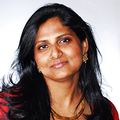
Priyamvada Natarajan, is an astrophysicist and Professor at Yale. She has made seminal contributions to our current understanding of the formation and growth of black holes and of the nature of dark matter by mapping it using gravitational lensing.…read more
Priyamvada Natarajan, is an astrophysicist and Professor at Yale. She has made seminal contributions to our current understanding of the formation and growth of black holes and of the nature of dark matter by mapping it using gravitational lensing. Recipient of many awards & honors, Priya is also the current chair of the Division of Astrophysics of The American Physical Society. She is also the author of the critically acclaimed book Mapping the Heavens: The Radical Scientific Ideas that Reveal the Cosmos.
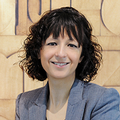
Emmanuelle Charpentier, Ph.D.is a French microbiologist, geneticist and biochemist.…read more
Emmanuelle Charpentier, Ph.D.is a French microbiologist, geneticist and biochemist. She is Founding and Acting Director of the Max Planck Unit for the Science of Pathogens, Scientific Director at the Max Planck Institute for Infection Biology and Honorary Professor at Humboldt University, Berlin, Germany. Emmanuelle has been widely recognized for her innovative research that laid the foundation for the ground-breaking CRISPR-Cas9 genome engineering technology. She has received numerous prestigious international awards and distinctions and is an elected member of national and international academies. She is co-founder of CRISPR Therapeutics and ERS Genomics.
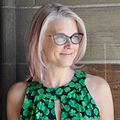
Amie Wilkinson is a mathematician working in the area of Dynamical Systems.
…read moreAmie Wilkinson is a mathematician working in the area of Dynamical Systems.
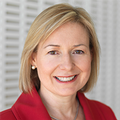
Rosalind Picard, Sc.D, is founder and director of the Affective Computing Research Group at the MIT Media Laboratory, faculty chair of MIT’s MindHandHeart, cofounder and chief scientist of Empatica, which created the first FDA-cleared smart watch for neurology, and cofounder of Affectiva, providing emotion AI software and services.…read more
Rosalind Picard, Sc.D, is founder and director of the Affective Computing Research Group at the MIT Media Laboratory, faculty chair of MIT’s MindHandHeart, cofounder and chief scientist of Empatica, which created the first FDA-cleared smart watch for neurology, and cofounder of Affectiva, providing emotion AI software and services. The author of over 300 peer-reviewed scientific articles, Picard is known internationally for her book Affective Computing, which helped launch the field of Affective Computing. An active inventor and holder of many patents, Picard is focused today on inventing emotionally smart AI technologies in service of better human health and wellbeing.
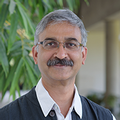
Prof. Satyajit Mayor is an Indian cell biologist. He directs the National Centre for Biological Sciences, TIFR, in Bangalore, India.…read more
Prof. Satyajit Mayor is an Indian cell biologist. He directs the National Centre for Biological Sciences, TIFR, in Bangalore, India. With an M.Sc. in Chemistry from IIT Bombay, and Ph.D. in Life Sciences from The Rockefeller University, New York, his postdoctoral training was at at Columbia University, New York. The broad aim of Prof Mayor’s laboratory is to provide an understanding of Life at the Cell’s Edge by understanding the mechanisms behind cell membrane structure and organization, and endocytic processes in metazoan cells.
He is a Foreign Member of National Academy of Science (USA) and fellow of EMBO, and Indian National Science Academy and National Academy of Science, India.
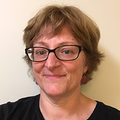
Meg Urry directs the Yale Center for Astronomy and Astrophysics and was previously chair of the Yale Physics Department and President of the American Astronomical Society.…read more
Meg Urry directs the Yale Center for Astronomy and Astrophysics and was previously chair of the Yale Physics Department and President of the American Astronomical Society. She received her BS in physics and mathematics from Tufts University and her PhD from Johns Hopkins University. Her research focuses on active galaxies, which host massive black holes growing at their centers. She is a Fellow/Member of the American Academy of Arts and Sciences, the American Physical Society, American Women in Science, the Connecticut Academy of Science and Engineering, and the National Academy of Sciences.
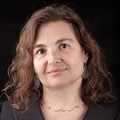
Daniela Rus is the Andrew (1956) and Erna Viterbi Professor of Electrical Engineering and Computer Science and Director of the Computer Science and Artificial Intelligence Laboratory (CSAIL) at MIT.…read more
Daniela Rus is the Andrew (1956) and Erna Viterbi Professor of Electrical Engineering and Computer Science and Director of the Computer Science and Artificial Intelligence Laboratory (CSAIL) at MIT. Rus's research interests are in robotics, machine learning, and artificial intelligence. The key focus of her research is to develop the science and engineering of autonomy. Rus is a Class of 2002 MacArthur Fellow, a fellow of ACM, AAAI and IEEE, and a member of the National Academy of Engineering and of the American Academy of Arts and Sciences. She is the recipient of the Engelberger Award for robotics. She earned her PhD in Computer Science from Cornell University.
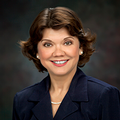
Dr. Nelson’s scientific research involves mechanistic patterns in alkene addition reactions and Single-Walled Carbon Nanotube (SWCNT) functionalization and analysis.…read more
Dr. Nelson’s scientific research involves mechanistic patterns in alkene addition reactions and Single-Walled Carbon Nanotube (SWCNT) functionalization and analysis. Her work on America's scientific readiness focuses on (1) science education, including classroom innovations and correcting organic chemistry textbook inaccuracies, (2) ethnic and gender diversity (Nelson Diversity Surveys) among STEM departments of research universities, and (3) improving the image and presentation of science and scientists to the public. Nelson was science advisor to the AMC television show Breaking Bad and 2016 President of the American Chemical Society (ACS). She has almost 200 publications and dozens of awards; more information is available at https://en.wikipedia.org/wiki/Donna_Nelson .
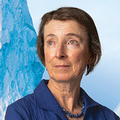
Jennifer Francis earned a B.S. in Meteorology from San Jose State University in 1988 and a PhD in Atmospheric Sciences from the University of Washington in 1994.…read more
Jennifer Francis earned a B.S. in Meteorology from San Jose State University in 1988 and a PhD in Atmospheric Sciences from the University of Washington in 1994. She was a Research Professor in the Department of Marine and Coastal Sciences at Rutgers University from 1994 to 2018, where she taught courses in satellite remote sensing and climate-change issues, and also co-founded and co-directed the Rutgers Climate and Environmental Change Initiative. Presently she is a Senior Scientist at the Woods Hole Research Center, where she studies Arctic climate change, Arctic-global climate linkages, climate policy, and science communication. She and her husband circumnavigated the world in a sailboat from 1980-1985, including Cape Horn and the Arctic, during which her interest in weather and the Arctic began.
John Maeda is Global Head of Computational Design + Inclusion at Automattic, Inc., former Design Partner at Kleiner Perkins, and former President of Rhode Island School of Design.…read more
John Maeda is Global Head of Computational Design + Inclusion at Automattic, Inc., former Design Partner at Kleiner Perkins, and former President of Rhode Island School of Design. He is author of The Laws of Simplicity and Redesigning Leadership. He holds degrees in Electrical Engineering + Computer Science from MIT, MBA from ASU, and PhD from University of Tsukuba in Japan. He has appeared as a speaker all over the world, and his talks for TED.com have received over 2 million views to date. Maeda is the recipient of numerous awards and can be found on Twitter at @johnmaeda.
Press Inquiries
- Sarah Hausman
